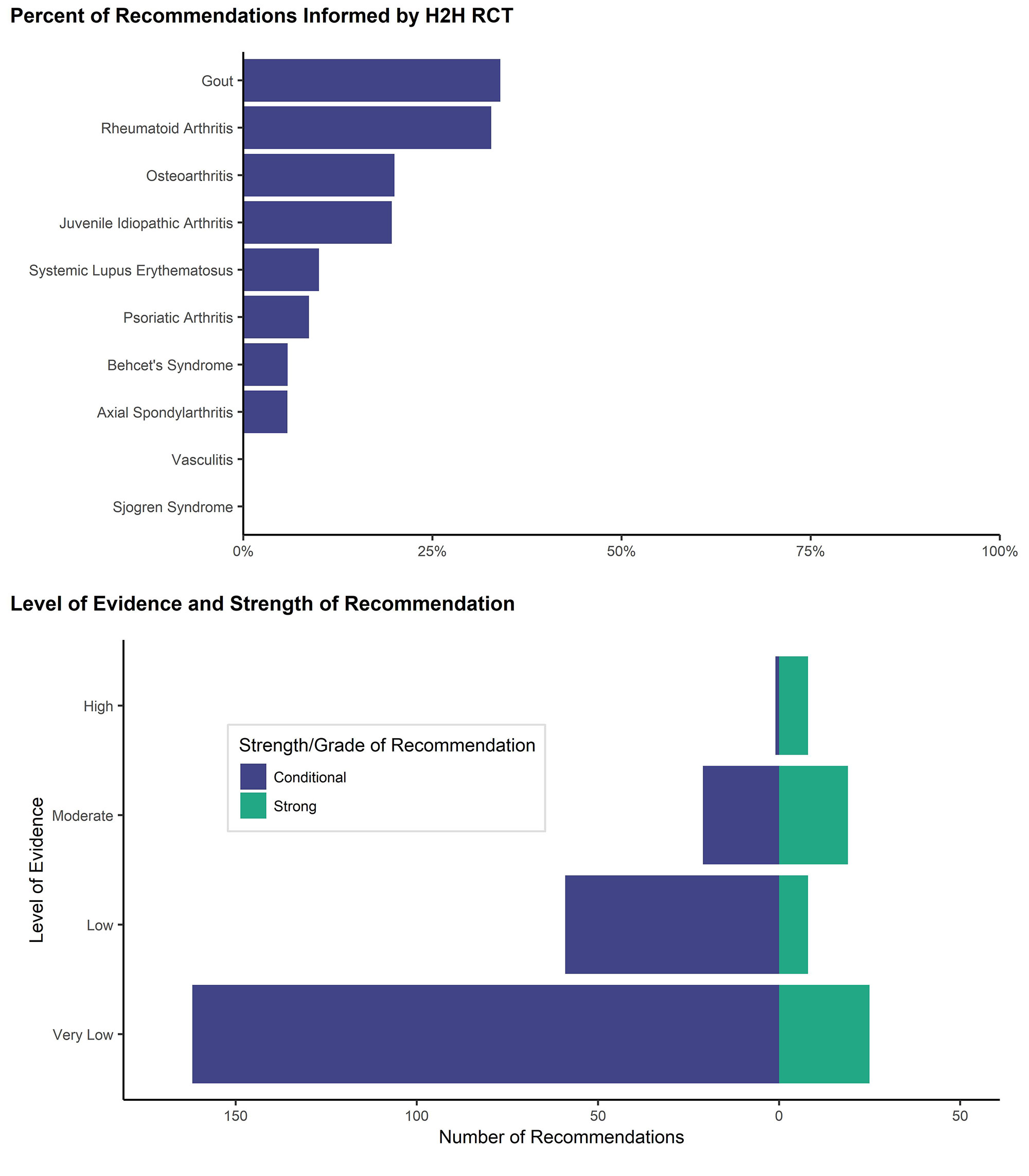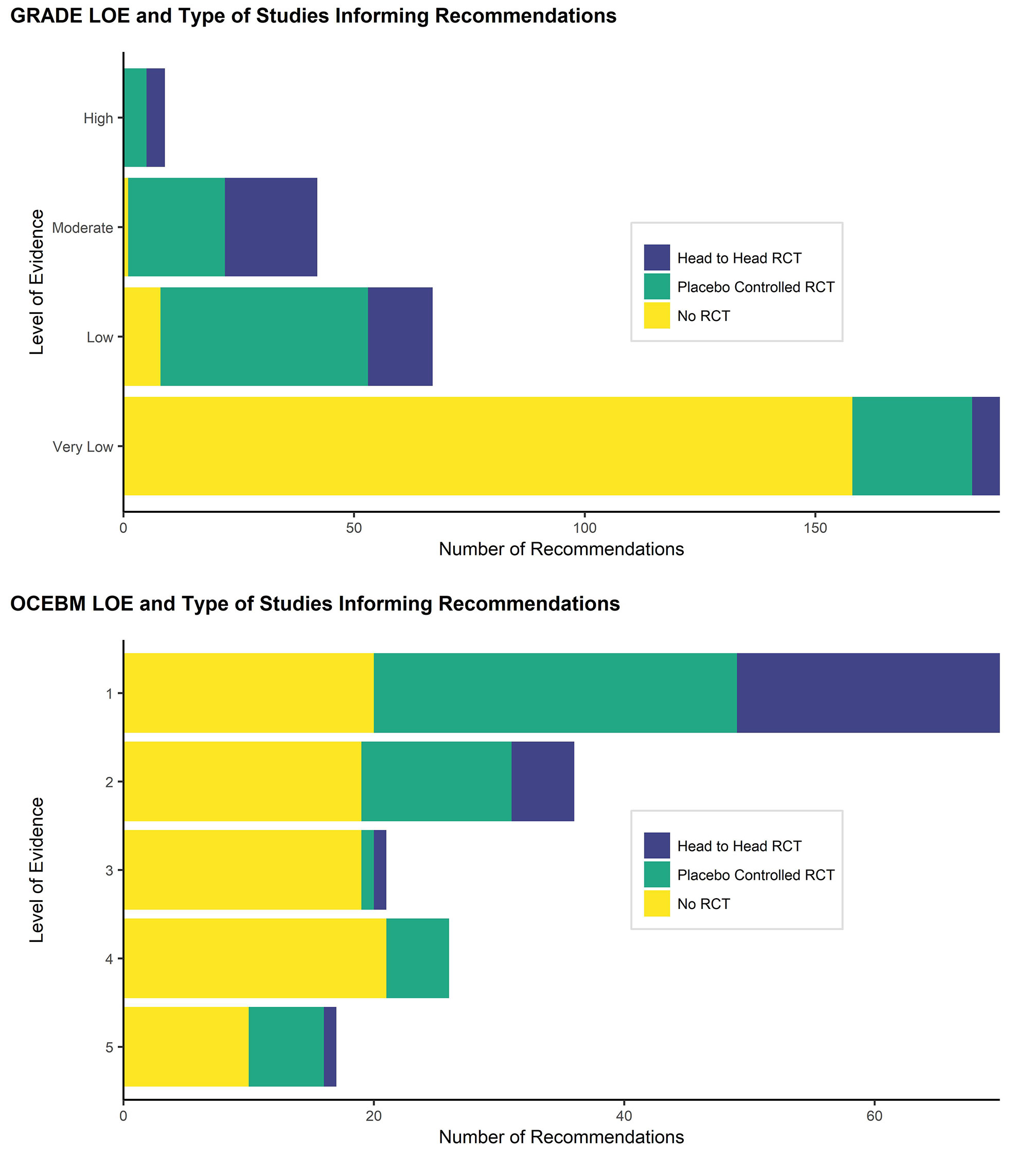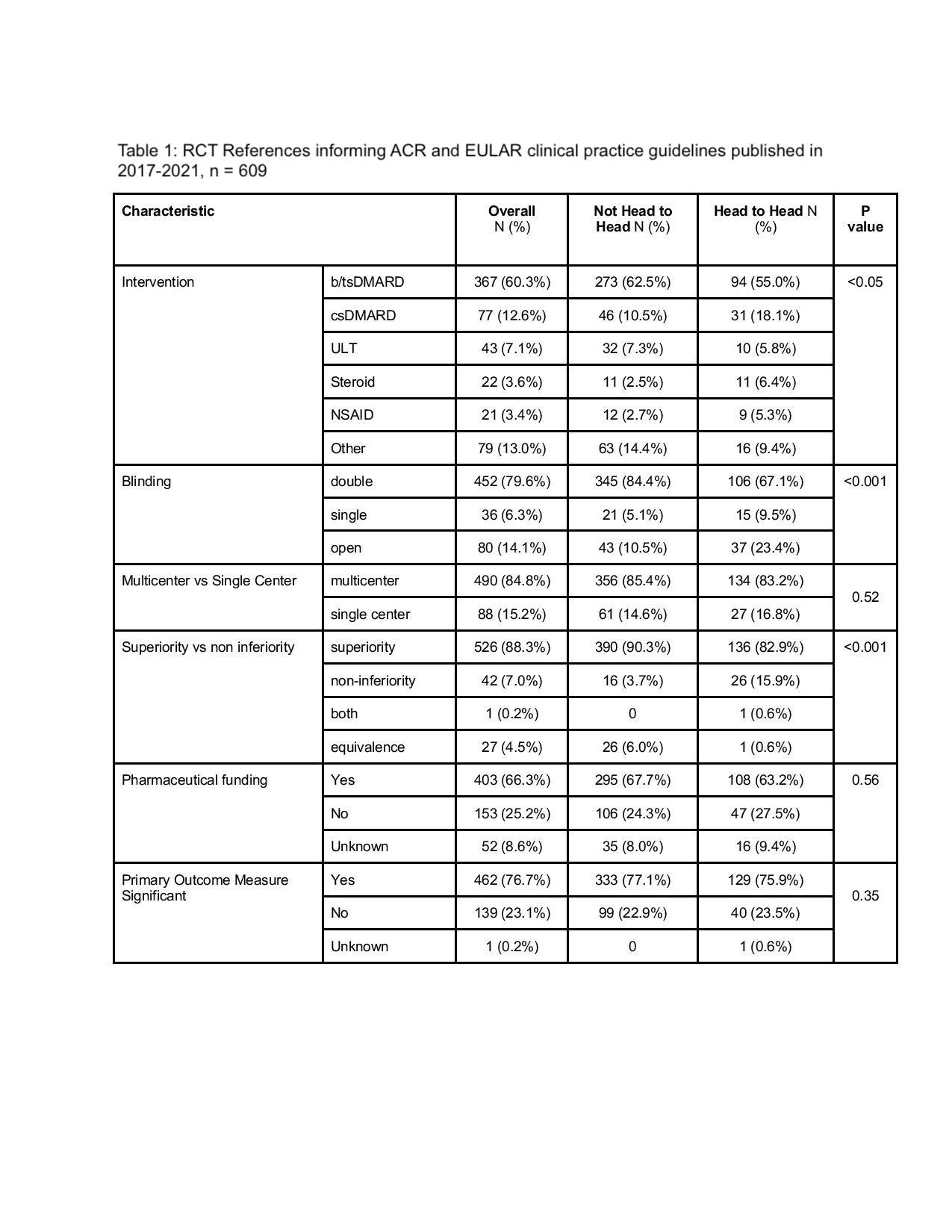Session Information
Session Type: Poster Session C
Session Time: 1:00PM-3:00PM
Background/Purpose: Comparative effectiveness randomized controlled trials (RCTs) compare two active interventions in a head-to-head design. They are useful for informing clinical practice guidelines, but the degree to which such trials inform clinical practice guidelines in rheumatology is unknown.
Methods: The American College of Rheumatology (ACR) and European Alliance of Associations for Rheumatology (EULAR) websites were searched from 1/1/2017-6/12/2021 for current clinical practice guidelines. RCTs referenced by each guideline were identified, and information regarding design and outcomes were extracted. Clinical practice recommendations from each guideline were also analyzed.
Results: Fifteen ACR and 9 EULAR endorsed guidelines were included, which cited 609 RCTs and provided 481 recommendations. Referenced RCTs enrolled an average of 418 patients (SD 985), most frequently evaluated biologic/targeted synthetic disease-modifying antirheumatic drugs (b/tsDMARDs) (70.1%), and infrequently utilized a head-to-head design (28%). A minority of recommendations received a high level of evidence (LOE) by the GRADE methodology (2.9%) or an “A” grade by the OCEBM methodology (28.9%). LOE was higher for recommendations informed by RCTs (p < 0.001) or head-to-head RCTs (p = 0.008). Many recommendations received a strong recommendation despite low (8, 2.6%) or very low (25, 8.3%) LOE.
Conclusion: Less than 1 in 6 rheumatology guideline recommendations are informed by head-to-head RCTs. Recommendations that were informed by head-to-head RCTs were more likely to have a high LOE by both GRADE and OCEBM. Efforts to introduce more comparative effectiveness RCTs should be undertaken.
Figure 1 (b) Level of evidence and strength of recommendations.
Figure 2(b): OCEBM LOE and type studies informing recommendations
To cite this abstract in AMA style:
Henry K, Nepal D, Valley E, Pedersen C, Duarte-Garcia A, Putman M. Comparative Effectiveness Randomized Controlled Trials in Rheumatology Guidelines [abstract]. Arthritis Rheumatol. 2022; 74 (suppl 9). https://acrabstracts.org/abstract/comparative-effectiveness-randomized-controlled-trials-in-rheumatology-guidelines/. Accessed .« Back to ACR Convergence 2022
ACR Meeting Abstracts - https://acrabstracts.org/abstract/comparative-effectiveness-randomized-controlled-trials-in-rheumatology-guidelines/



